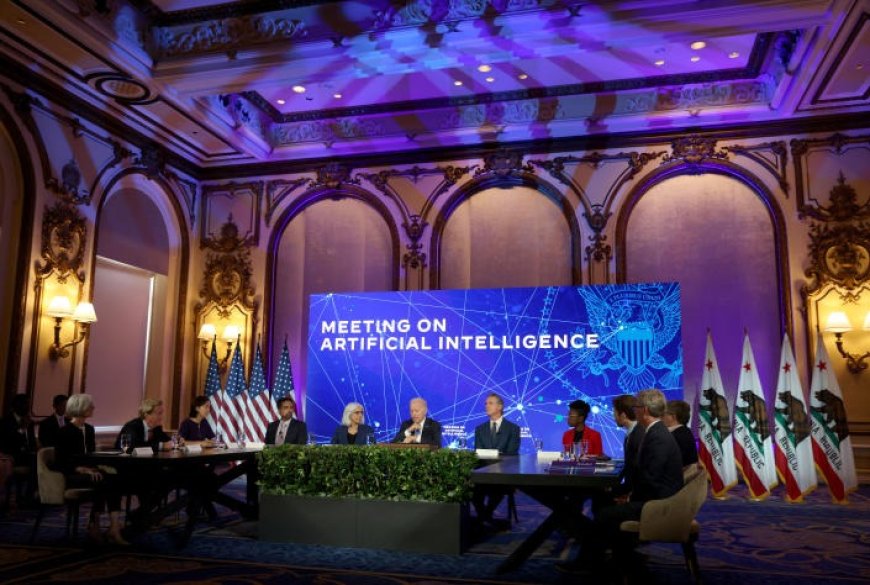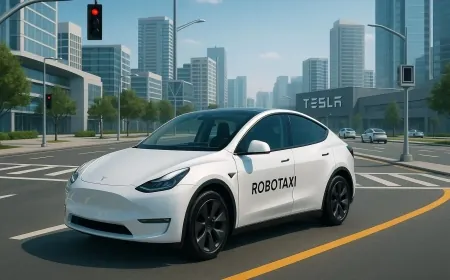Exploring the Historical Analogies of AI Regulation: Insights from Washington
Comparing AI to Social Media Abuses, Globalization, and the Atomic Bomb

Washington, D.C., finds itself at the forefront of the challenge to regulate artificial intelligence (AI), drawing on historical analogies to comprehend and address the implications of this groundbreaking technology.
Leaders in the capital are resorting to a myriad of comparisons, ranging from social media abuses (as President Biden highlighted) to the far-reaching effects of globalization and even the paradigm-shifting atomic bomb. The multitude of metaphors employed reflects the early stages of Washington's understanding and the consequential decisions it must make regarding AI.
In his recent remarks, President Biden emphasized the need for safeguards against the potential harm caused by powerful technologies, drawing parallels to social media abuses. He expressed his intention to avoid repeating the mistakes of the past and underscored the importance of responsible deployment.
Senate Majority Leader Chuck Schumer invoked the cautionary tale of globalization in his speech, acknowledging the wealth disparities it has perpetuated. He called for proactive measures to address the negative consequences and ensure a more balanced and equitable outcome.
Representative Ted Lieu, who possesses a computer science background, likened AI to the disruptive nature of the steam engine. In a recent video, he described AI as a nascent technology that will continue to evolve, transforming into a "rocket engine with a personality" in the near future.
Senator Josh Hawley added an intriguing perspective by contemplating the parallels between AI and the Manhattan Project's atomic bomb. He recognized the significant technological breakthrough but also highlighted the severe consequences that could arise if misused.
Former Federal Communication Commission Chairman Tom Wheeler, an expert on historical analogies, suggests that drawing comparisons can provide valuable insights during the early stages of addressing unprecedented challenges. Wheeler evokes the regulation of railroads, highlighting the necessity of finding a delicate balance between progress and protecting citizens' interests. He predicts that the ongoing debate surrounding AI will follow a similar evolutionary process in the coming months.
While historical analogies offer valuable insights, Wheeler emphasizes the importance of adapting to current challenges with forward-thinking solutions. He advocates for the establishment of a digital agency dedicated to overseeing AI policy, citing Europe's proactive stance on this front. He stresses the need for the United States to actively participate and contribute to shaping AI regulations.
Washington's leaders recognize the urgency of the matter and the need for innovative processes to develop effective AI legislation. Senator Schumer proposes supplementing traditional lawmaking with AI insight forums, which bring together diverse perspectives and enable agile decision-making. This approach aims to generate actionable ideas within a shorter timeframe.
Representative Lieu, alongside fellow lawmakers, proposes the creation of a blue-ribbon AI commission focused on swift regulation suggestions for critical areas, such as self-driving cars. Prioritizing key concerns over broader issues, this commission aims to address specific AI applications requiring immediate attention.
Sarah Kreps, the director of Cornell University's Tech Policy Institute, emphasizes the importance of tailored legislation rather than a one-size-fits-all approach. Kreps advocates for finding a balanced solution that mitigates risks while avoiding excessive bureaucracy. She draws parallels to the lessons learned from electricity, highlighting its benefits while acknowledging the potential for shocks.
Regulating AI remains a complex and evolving endeavor. Washington strives to understand and navigate the intricate landscape of AI while ensuring it serves the best interests of society. By drawing on historical analogies, engaging in thoughtful debates, and exploring new regulatory frameworks, policymakers aim to strike a delicate balance that encourages innovation while safeguarding against potential risks.
In this ever-changing AI landscape, policymakers, experts, and society at large remain committed to shaping a future that maximizes the benefits of AI while ensuring ethical considerations and safeguards are in place.
Also Read: Know the Secrets of AI: Your Essential Guide to Understanding Artificial Intelligence






























































